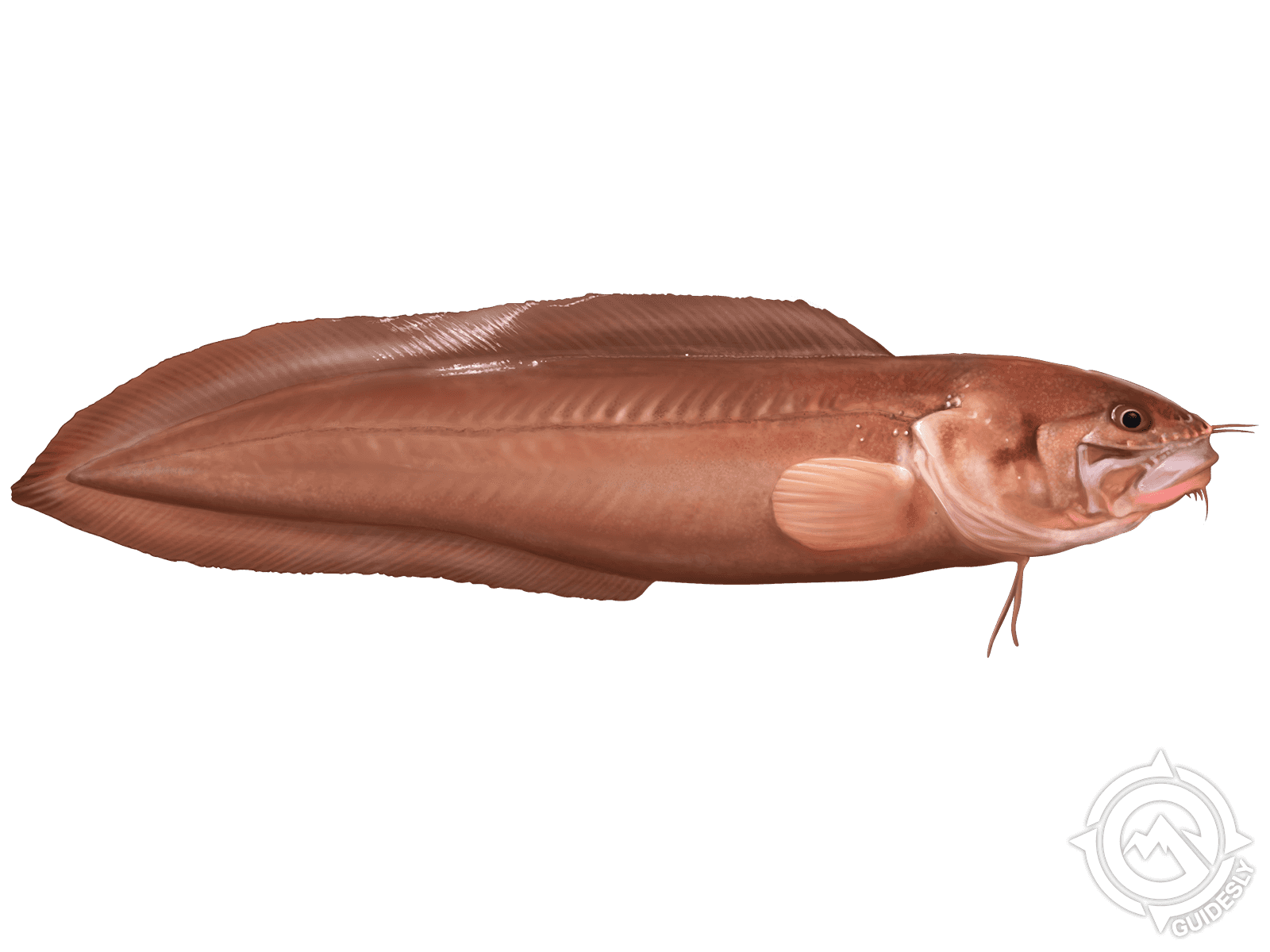Bearded Brotula

Species Details
Brotula Barbata
Ophidiidae
Ophidiiformes
Onshore, Nearshore, Offshore, Reef, Wreck
8 - 18 lbs.
19" - 37"
Bearded Brotula (Brotula barbata) Fish Description
A Bearded Brotula is a carnivorous fish species with an elongated body completely covered with small yet smooth scales. Its face is somewhat deep – with large eyes, mouth, and gill openings – and has a pointed caudal fin. Its anal and dorsal fins are long and continue to its tail. It also has 12 barbels with size each on its snout and chin.
It commonly has a shade of brown to olive, and some have freckles or spots on them. A juvenile Bearded Brotula has a dark stripe on its head with large dark brown spots on its body.
Diet and Size
This fish feeds on crustaceans (like small clams, shrimps, and crabs) and bony fishes found in shallow waters.
The standard size of a Bearded Brotula is 19.6 inches, but it can grow as long as 39. Its highest published weight is 18 lbs. and 12 oz.
Interesting Facts About Bearded Brotula
- Bearded Brotulas are sold commercially, but somewhat limited, as ‘Lengua Grouper.’ It is found to be a cheaper alternative to a grouper, which is quite expensive.
- Recreational anglers and commercial fishers have little interest in catching a Bearded Brotula. However, its meat can be a treat since it has a nice, flaky texture.
- A female Bearded Brotula lays a large number of eggs at once. Its eggs have a gelatin consistency and float in the water.
- Some Beareded Brotulas are completely blind.
- A seafood restaurant in Florida was named after the Bearded Brotula since lots of them are found there.
Habitat and Distribution
The Bearded Brotula loves to swim in tropical and sub-tropical climates such as the Western Atlantic areas like North Carolina to Brazil, or the coasts of Florida and the Gulf of Mexico. It can also be found in the Eastern Atlantic from Mauritania to Angola.
It dwells in sand bottoms and rocky reefs with depths up to 2,100 feet. Adults can suspend themselves above the bottom of the ocean (also called benthopelagic) and love to stay on the muddy or sandy floors. On the other hand, the younger Brotulas stay within the reefs. That’s why angler barely catches them. They do swim at shallower depths during the night to feed themselves.
Fishing Technique: How to Catch a Beaded Brotula
There is such limited information on catching a Bearded Brotula, maybe because there’s not much interest to catch them. Often, they are caught as a by-catch. Anglers who usually do deep sea fishing and drift fishing for swordfish and tuna catch Bearded Brotulas by accident. Also, they are a by-catch by commercial fishers of their deep water trawling for fish and shrimps.
Not much is published on how to catch this fish. Unless you intend to catch one, you can paddle off into the areas where they can be easily found and use live bait or artificial ones that mimic its prey. Other than that, anglers usually just catch them unintentionally as this fish species will feed on your bait.
There is also no restriction whatsoever in catching Bearded Brotula because, as mentioned earlier, not so many anglers and commercial fishers are interested in catching one. That does not mean it’s not good to eat, though. A Bearded Brotula tastes good when pan-roasted with some butter and lemon.







